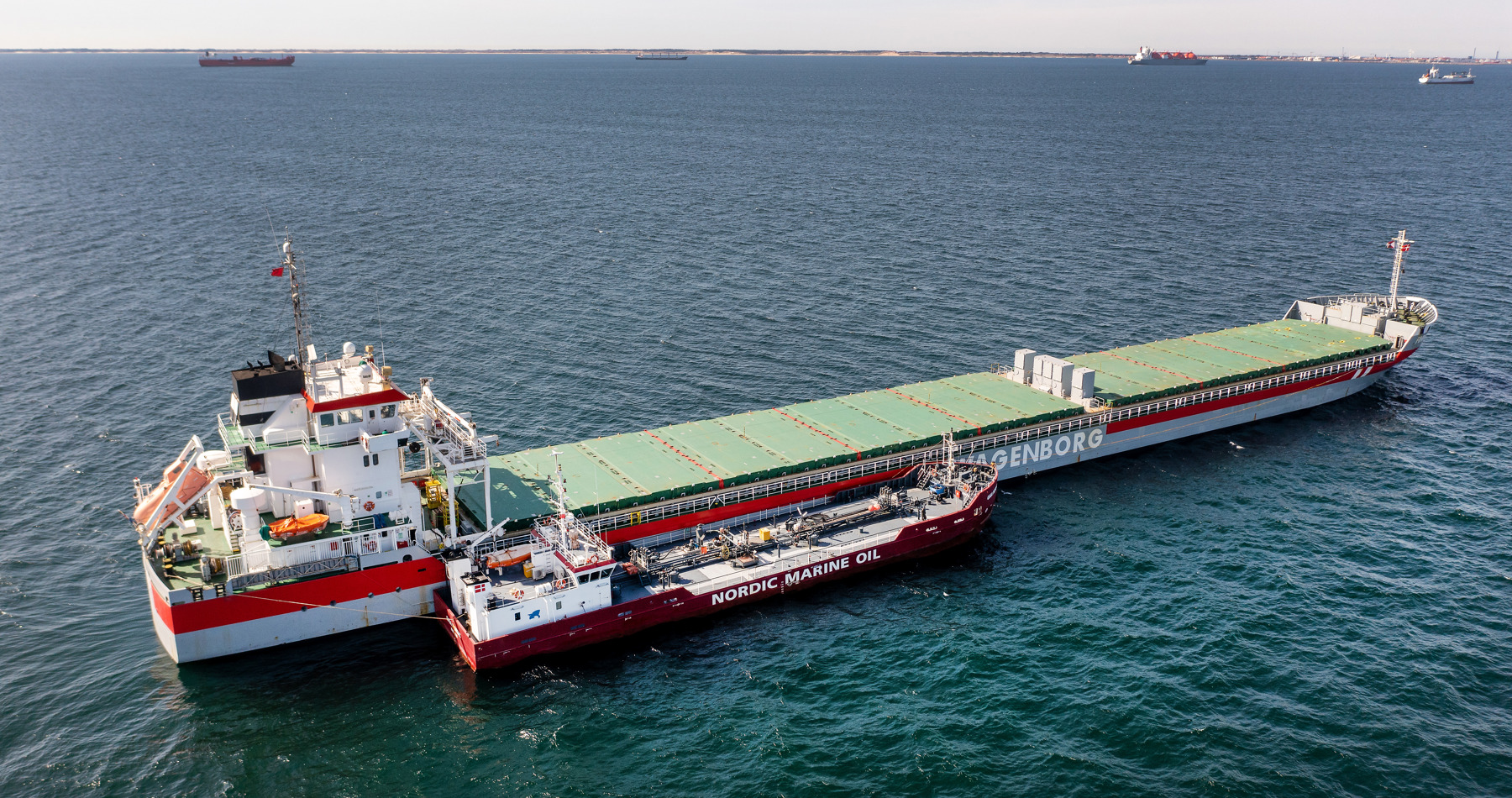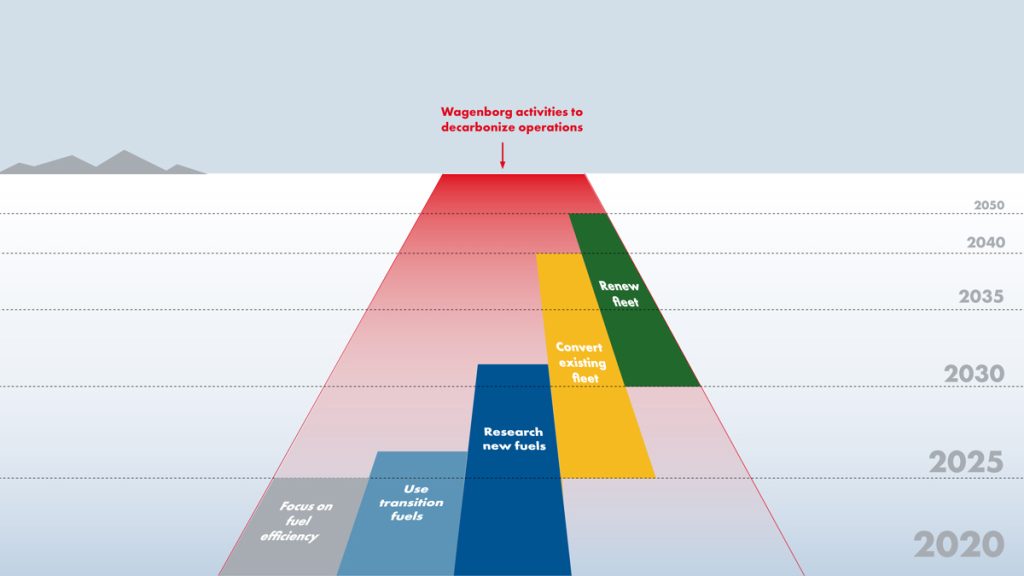
First Transatlantic voyage sailing on biofuels reduces 68% GHG emissions.
Wagenborg consider the recent use of biofuels as a first step in short-term success when it comes to CO2 reduction. Significant CO2 reductions can only be achieved when actions are taken in the entire supply chain.
Availability of renewable marine fuel across the fleet.
Wagenborg entire fleet of MPP vessels is able to bunker the ISO 8217 compliant co-processed marine fuel, since no investment in onboard equipment is required to use this sustainable drop-in marine fuel. The fuel is produced using ISCC PLUS certified raw materials, such as vegetable oils, used cooking oil, or animal fat, which may reduce GHG emissions up to 80% over the lifecycle, when compared to fossil fuels.\
Using bio-fuels fits Wagenborg’s sustainability strategy.
At Wagenborg they believe in a sustainable marine future and the use of bio-fuels fits perfectly in their sustainability strategy. By following five consecutive steps, the company aim to achieve a 40% CO2 reduction by 2030 and even 70% by 2050, compared to base year 2008. So far, their fuel efficiency program and the first use of bio fuels resulted in a CO2 reduction of about 26% compared to the year 2008.


